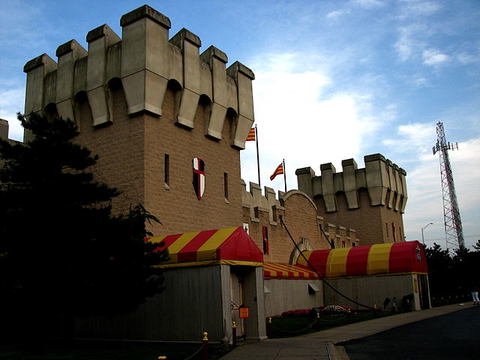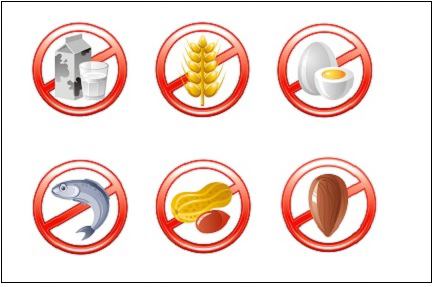
If you feel that there are more and more people with a food allergy, it is indeed the case. Between 1997 and 2008, we would have seen an increase of 18% in the under 18 in Quebec. Among the statistics released by Allergies Quebec, indicate that 40,000 elementary students have food allergies while this figure increases to 300 000 for the entire province. What can explain such an increase? And what impact might this have for restaurants?
Why so many food allergies?
It is difficult to establish an exact cause can explain the increase in the prevalence of food allergies. By cons, several theories are tested by researchers, such as better knowledge of the symptoms of food allergies, better diagnosis, more sanitized environment, a greater variety of food or a lack of exposure to vitamin D.
On the website of Health Canada, it is possible to find food allergens responsible for most allergic reactions: peanuts, nuts, sesame seeds, milk, eggs, fish, shellfish, soy, wheat and sulphites. By cons, an article published by Stéphan Dussault in the journal shows Protect yourself that it is possible to trace more than 160 foods can cause allergic reactions, and only in Canada. For restaurateurs, this can become problematic.
What are the responsibilities of restaurateurs?
In a 2008 article in the Journal HOTELS, RESTAURANTS & INSTITUTIONS, Chantal de Montigny, author of Food Allergy Management Manual for Restaurants and Food Services offers several tips for restaurants. Of these, staff should know to recognize the symptoms of a food allergy. Thereafter, it must respond quickly and manipulate the autoinjector while remaining calm.
Of course, prevention is better before finding themselves face such a situation. According to the author of the manual, the most common errors in food allergies in restaurants are "lack of communication, ignorance of the presence of hidden allergens in food and cross-contamination. "Errors that can fortunately be prevented, including through training. For ten years the non-profit organization Allergies Québec offers training adapted to restaurateurs, be it preparing food allergen or the art of entertaining customers with food allergies. These courses can even be offered in schools or early childhood centers. "Quebec is the reference is not bad in terms of training for restaurants, but this is not an obligation for them," says Dominique Lord, director of communications Allergies Quebec.
Another way to ensure the safety of people with a food allergy is removing allergens menu. For example, the ZERO8 restaurant, located in Montreal, guarantees excluding eight allergens in the preparation of its dishes. While this might seem drastic, it is possible to adapt his menu, like the Paccini restaurant chain. Indeed, consumers wishing to reduce their consumption of gluten can access dishes designed especially for them. Unfortunately their website clearly states that there may be risks of cross-contamination for those with severe allergies or intolerances to gluten. Despite the precautions restaurateurs, customers must remain cautious, particularly with a handy auto-injector at all times.
According to Ms. Lord, there is still work to do for restaurateurs regarding food allergies, "I think there was a good effort from [them] that has been done in recent years with few resources this is to say that there is no real uniformity protocol or another in Quebec. I think there's a good effort, but it is continuous, it's something that'll have to work on it for years to come. "According to her, the ideal would be to have a regulation governing allergy sufferers. Pending the application of such a law, it is possible to learn about the latest Canadian regulations on the labeling of allergens, in force since August 2012. According to you, what solutions should be implemented?







